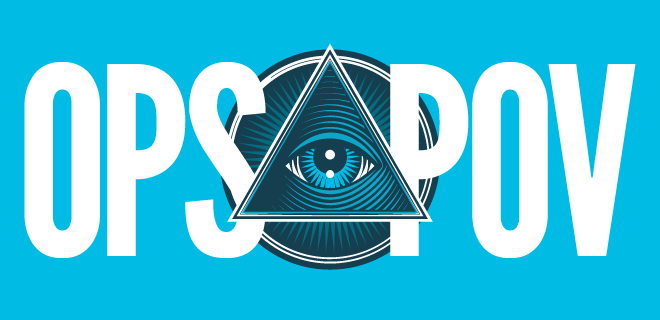
Digital Media and Advertising Technology have gone through many peaks and valleys over the last several years.
From the rise of programmatic and streaming spend to mounting global consumer privacy policies to the impending deprecation of third-party cookies to increases in ad fraud and ad blockers — the industry has seen its share.
Plus let’s not forget the revenue losses of the pandemic, along with a slower Q2 and Q3 this year, and a looming recession that shall not be named as such. But as the great American abolitionist, Frederick Douglas, once said, “If there is no struggle, there is no progress.”
With all of the changes over the last few years, there’s been quite a shift in the role of revenue operations. I spoke with Erik Requidan, CEO & Founder, Media Tradecraft, about how his organization helps revenue ops folks deal with change, as well as what the future looks like.
We covered a range of topics from the importance of DEI, to how the Great Resignation is impacting the industry, to why publishers need to be better planners, and of course, what the future of revenue operations looks like.
DEI Is Innovation
 Lynne d Johnson: Diversity, Equity, and Inclusion gained a lot of attention in the advertising ecosystem since the murder of George Floyd. And I see that you built a diverse business at Media Tradecraft. How important is it that media organizations, agencies, and brands have diversified teams — what does it mean for the future of the ecosystem?
Lynne d Johnson: Diversity, Equity, and Inclusion gained a lot of attention in the advertising ecosystem since the murder of George Floyd. And I see that you built a diverse business at Media Tradecraft. How important is it that media organizations, agencies, and brands have diversified teams — what does it mean for the future of the ecosystem?
Erik Requidan: We had to consider how to build a business that is reflective of what the real world looks like. In addition, tremendous talent gets overlooked, and often that talent getting overlooked are the folks figuring out solutions to some of the problems the industry faces. Overlooking these folks, that’s not innovation, is it? Innovation is a series of continuous steps and it requires a lot of time, new angles of thought, and new approaches to the challenges.
The reality is that diverse teams do better and our clients are benefiting as a result. We’ve had clients say they chose to go with our company because we bring something new. With some of the biggest challenges ahead, everyone should be excited about bringing in new blood to solve some of the industry’s issues.
The Great Resignation and Finding the Best Talent
LdJ: With the Great Resignation, we saw a lot of job hopping. How can publishers get ahead of this and make sure they’re hiring the right people and being cost-effective?
ER: With the Great Resignation it’s been very difficult for publishers to find the best talent out there. It can take anywhere from four to eight months to bring on the right skill sets or the right candidates. This is where we really built a model that hasn’t existed before. This is why I know there’s a lot of excitement around working with us because we insource ourselves instead of outsourcing, which has been the traditional model.
What happens next is the publisher or media company has now upskilled its operators. They have brought in people that can actually work with others and pass on that knowledge through collaboration. They not only work with ad operations teams, but the developers, and then also audience development, product teams, C-suite, revenue, leadership, marketing, and subscriptions. This is where we can bring in those skill sets that are really hard for publishers to actually find.
We’re efficient collaborators with publishers and media companies that are looking for that. They don’t want to outsource it. They want to retain control. We help them do that and keep it in-house.
Insourcing Brings Business Acceleration
LdJ: I’ve spoken to a lot of outsourcing companies and it seems to be a very different process than what you’re explaining. A pub sends them tasks, they do those tasks, and then send the finalized work back. That’s not like being part of the team, right?
ER: Our partners have big overarching goals. Being able to understand what all of those things are also helps long-term business sustainability. It builds a plan and a roadmap.
Bigger companies aren’t looking to just see how much revenue they can accumulate in the next 15 days. Those days are gone, at least from our client base. That’s where a comprehensive approach, real strategic planning, and ultimately execution of those things come into play. The execution piece is one of the hardest things. Insourcing brings business acceleration and helps them accomplish a lot of their short and long-term goals.
The Key to Strategic Planning is Determining Your Success Metrics
LdJ: With third-party cookies going away and content and context playing a pivotal role in the future, how should publishers change their thinking?
ER: We work with some of the biggest publishers in the world and these are the challenges they are facing right now. A big part of that challenge is products. Internally, there are different products so it’s really about customization for those products or a strategy that’s customized. It’s important that publishers focus less on what other companies are doing and concentrate on how they want to personally customize for their audience.
It sounds simple, but you have to come up with a plan. You have great products but you haven’t determined what success metrics will look like. Your plan can’t center around wanting more money. More money is great, but if you’re in charge of bringing in more subscriptions, then more subscriptions are more than just more money. It’s about building trusted relationships with your audience. Furthermore, if you’re developing an audience or if you want to deepen a relationship with a regular visitor, then that’s different. This is where a strong orchestration and a strong skill set for executing a plan are really important.
Rethinking Your Strategies
LdJ: What do you think will be some of the most important products that pubs need to focus on to survive?
ER: From my vantage point, independent publishers or large media companies already have successful products. They are simply looking for key areas to improve upon. Some of the success formulas are a little less tied to a lot of products that are being promoted out in the marketplace. I think there are going to be a few important connective technologies but at the heart, publisher media companies have so many great things to work with already. They just need to rethink their strategies.
It is about building a plan that is about you. A lot of the marketplace wants to convince you that you can only be successful by copying their strategies, but customization of your products that fits your company is the key.
The Future of Revenue Operations
LdJ: You led sessions at this year’s AdMonsters Ops and at our most recent PubForum about the Future of Revenue Operations. What were some of the big takeaways from those sessions?
ER: There will be a lot of coordination with other stakeholders within the company, bringing together many decisions and many strategies into one. We also see operations moving out of the back office to the front office — our prediction is that rev ops will become a Chief Coordination Officer or Chief Orchestration Officer.
If I had to break it down into three big takeaways, they would be:
- Internal coordination, cooperation, and collaboration across multiple departments will be required – now more than ever before.
- Regardless of size, small medium, or large pubs – the need for additional help and services from the outside or inside is really needed.
- Some publishers will need more generalized services and others will need specialized services to help power the success of the organization.